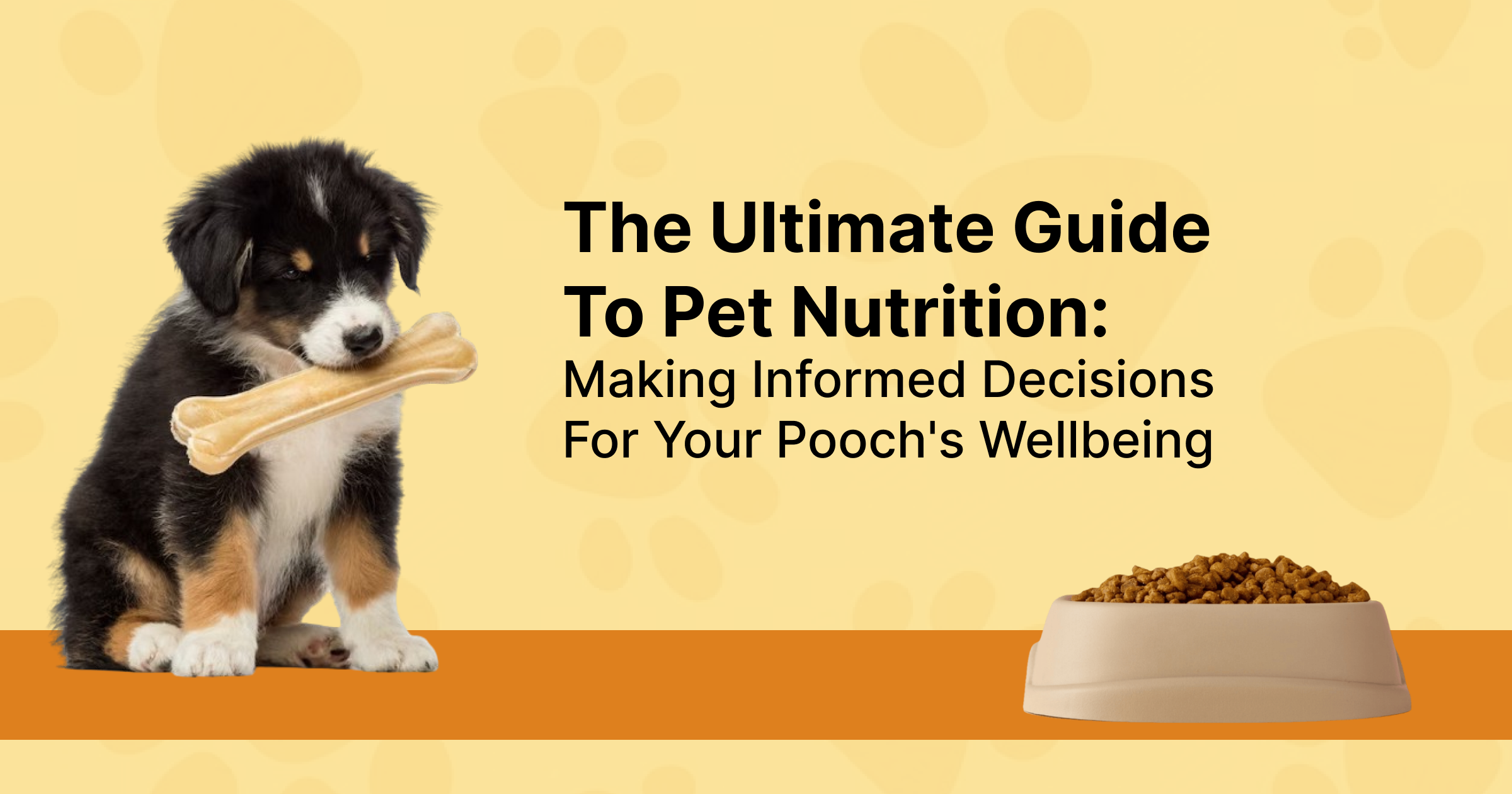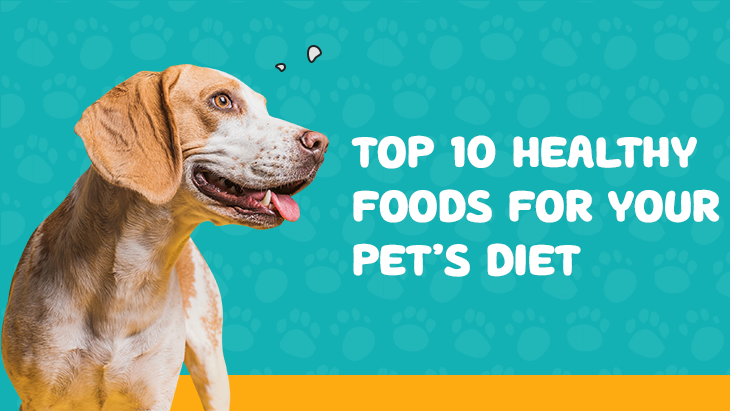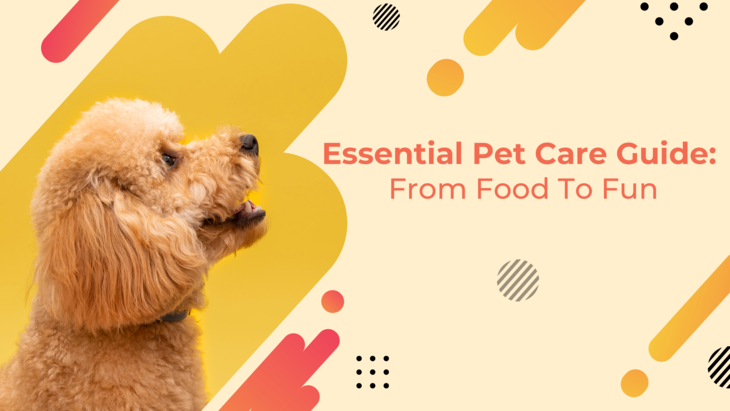Thinking of getting a furry friend? Remember, their happiness and health depend on more than just cuddles and playtime. Proper nutrition is a vital component of pet care that is often overlooked. In this informative guide, we will delve into the essentials of pet nutrition, equipping you with the knowledge to make informed decisions for your beloved pooch. Discover how to ensure your pet's well-being through their diet and watch them thrive both physically and emotionally.
Understanding Pet Dietary Needs
Understanding pet dietary needs is crucial for providing optimal nutrition and maintaining good health for your pet. One important consideration is breed-specific requirements. Different breeds have distinct nutritional needs based on their size, activity level, and any potential health issues common to that breed. For example, large breeds like Great Danes may require diets with controlled growth rates to prevent joint problems, while small breeds like Chihuahuas may need diets with higher energy content due to their fast metabolism.
Another important factor to consider is age and life stage. Puppies have different nutritional needs than adult dogs, requiring diets that support their rapid growth and development. Conversely, senior dogs may have slower metabolisms and specific health concerns, such as joint issues or dental problems, which can be addressed through appropriate dietary choices. Adapting the diet according to the pet's age and life stage ensures they receive the necessary nutrients for their specific requirements.
Special dietary requirements may also be necessary for pets with certain health conditions. For example, pets with allergies may require a hypoallergenic diet that avoids specific ingredients, while pets with kidney disease may need a diet with restricted protein levels. It's important to work with your veterinarian to identify any specific dietary needs based on your pet's health condition and provide them with the necessary nutrients to manage their condition and promote overall well-being.
By considering breed-specific requirements, adapting the diet to age and life stage, and addressing any special dietary needs, you can provide your pet with a balanced and tailored diet that supports their health and longevity. Consulting with your veterinarian is crucial in understanding your pet's specific dietary needs and ensuring they receive the proper nutrition for a happy and healthy life.
Choosing the Right Pet Food
When it comes to choosing the right pet food, reading labels effectively is crucial. This can be a daunting task, but it is essential to make informed choices for your furry friend. By breaking down the essentials of pet food labels, we can empower you to understand what you are feeding your pet and ensure that they are getting the best nutrition possible.
One key aspect of reading pet food labels is identifying quality ingredients. Not all ingredients are created equal, and knowing how to recognize high-quality components is vital for your pet's wellbeing. This includes understanding the sources of protein, such as real meat or meat meal, as well as the presence of fruits, vegetables, and whole grains. By learning what to look for, you can make sure that your pet's food contains the necessary nutrients for optimal health.
In addition to identifying quality ingredients, it's important to avoid harmful additives in your pet's food. Many pet foods contain additives that can have negative effects on your pet's health. These can include artificial colors, flavors, and preservatives, as well as fillers and by-products. By educating yourself about these common culprits and learning how to avoid them, you can ensure that your pet's food is free from potentially harmful substances.
Ultimately, choosing the right pet food involves understanding how to read labels effectively, identifying quality ingredients, and avoiding harmful additives. By taking the time to educate yourself on these aspects, you can make informed decisions that will contribute to your pet's overall wellbeing and longevity.
Homemade vs. Commercial Diets
When it comes to feeding your pet, you have the option of choosing between homemade diets or commercial diets. Homemade diets involve preparing your pet's food from scratch using fresh ingredients, while commercial diets refer to pre-packaged pet food available in stores.
One of the main advantages of homemade diets is the ability to have complete control over what goes into your pet's food. You can carefully select the ingredients and ensure that they are of high quality and suitable for your pet's specific dietary needs. Homemade diets also allow you to tailor the meals to address any health issues or allergies your pet may have. Additionally, preparing meals for your pet can be a bonding experience and give you a sense of fulfillment in providing a personalized diet.
However, there are also potential downsides to homemade diets. The main concern is ensuring that the diet is nutritionally balanced. Pets require a specific balance of proteins, fats, carbohydrates, vitamins, and minerals for optimal health. Achieving this balance can be challenging without proper knowledge and guidance from a veterinary nutritionist. Inadequate nutrition can lead to deficiencies or imbalances that can negatively impact your pet's health. Another downside is the time and effort required to prepare homemade meals, which may not be feasible for everyone's lifestyle.
Commercial Diets
On the other hand, commercial diets offer convenience and a wide range of options. They are formulated to provide a balanced and complete diet for pets and are extensively researched and tested. Commercial pet foods often come with nutritional guarantees and feeding guidelines to ensure your pet's dietary needs are met. They are also convenient for busy pet owners and can save time and effort in meal preparation.
However, not all commercial diets are created equal. Some brands may use low-quality ingredients, fillers, or preservatives that may not be ideal for your pet's health. It is crucial to carefully evaluate the brand, read ingredient labels, and choose reputable companies that prioritize the well-being of pets. Additionally, some pets may have specific dietary requirements or sensitivities that are not adequately addressed by commercial diets, making a homemade or specialized diet a better option.
Ultimately, the decision between homemade and commercial diets for your pet should be based on careful consideration of their individual needs, your own capabilities, and consulting with a veterinarian or veterinary nutritionist. It is important to prioritize the nutritional needs of your pet while also considering factors such as convenience, cost, and personal preferences.
Essential Nutrients for Pets
Essential nutrients play a crucial role in ensuring the health and well-being of our beloved pets. Just like us humans, animals need a balanced diet to thrive. Protein is an essential nutrient for pets as it helps build and repair tissues, supports a healthy immune system, and contributes to strong muscles. Fats are also important for providing energy, aiding in nutrient absorption, and maintaining healthy skin and coat.
Additionally, pets require a variety of vitamins and minerals for proper growth and development, including vitamins A, D, and E, as well as calcium, phosphorus, and iron. Providing a well-rounded diet with all these essential nutrients is essential for keeping our pets happy and healthy.
Common Health Issues Linked to Poor Nutrition
Poor nutrition is often associated with a plethora of health issues. Firstly, individuals who don't consume a balanced diet often suffer from deficiencies in essential vitamins and minerals, leading to weakened immune systems. This can make them more susceptible to infections, common illnesses, and delayed wound healing. Moreover, a diet lacking in crucial nutrients like iron and calcium can contribute to bone disorders such as osteoporosis.
Additionally, poor nutrition is a significant risk factor for chronic diseases like diabetes, heart disease, and obesity. Individuals who consume excessive amounts of unhealthy foods high in sugar, salt, and saturated fats are more likely to experience weight gain, high blood pressure, and elevated cholesterol levels. Overall, maintaining a well-balanced diet is crucial for promoting overall health and preventing such health issues related to poor nutrition.
Creating a Balanced Diet for Your Pet
When it comes to feeding our pets, it is crucial to provide them with a balanced diet that meets their nutritional needs. Just like humans, pets require a combination of proteins, carbohydrates, fats, vitamins, and minerals for optimal health. A balanced diet should include high-quality animal protein sources such as meat or fish, supplemented with whole grains, fruits, and vegetables. It is important to consult with a veterinarian to determine the specific nutritional requirements of your pet and to ensure that their diet is well-balanced and suitable for their age, breed, and activity level. Don't forget to provide fresh water and monitor portion sizes to maintain a healthy weight.
Addressing Special Dietary Needs
Addressing special dietary needs involves catering to individuals who have specific dietary requirements due to allergies, medical conditions, or personal preferences. This includes accommodating individuals who need gluten-free, lactose-free, or vegetarian/vegan options. To address these needs, it is important to offer a diverse range of food choices that meet these requirements. This may involve ensuring that ingredients are clearly labeled, providing alternatives to common allergens, and offering a variety of plant-based options.
Additionally, training pet staff members on these dietary needs is crucial to ensure that they can properly assist and guide customers in making appropriate food choices. By addressing special dietary needs, individuals can enjoy dining experiences that are safe, inclusive, and satisfying.
Trends in Pet Nutrition
The pet nutrition industry is witnessing several notable trends that reflect the growing awareness and importance of providing high-quality nutrition to our furry friends. Firstly, there is a significant focus on natural and organic ingredients, with pet owners seeking products that are free from artificial additives and fillers. Additionally, there is a rising demand for specialized diets catered to specific health conditions or dietary preferences, including grain-free, raw, and limited ingredient options.
Furthermore, the industry is embracing the use of alternative protein sources such as insect-based or plant-based proteins to provide sustainable and environmentally friendly options. Finally, there is a growing emphasis on personalized nutrition, with pet wellness programs and customized meal plans gaining traction to meet individual pet needs.
Conclusion
Taking care of your pet's nutrition is essential for their overall health and happiness. By educating yourself about their specific dietary requirements and providing them with a well-balanced diet, you can ensure that they have all the necessary nutrients they need to thrive. Whether you have a dog, cat, or any other type of pet, understanding their unique needs will allow you to make informed decisions about what to feed them. By empowering yourself with this knowledge, you become an advocate for their wellbeing and can contribute to their long and healthy life. Remember, a well-nourished pet is a happy pet!
FAQs
Q1. Can I create a homemade diet for my pet without consulting a vet?
While it's possible, consulting a vet ensures the diet meets your pet's specific needs.
Q2. Are raw diets safe for all pets?
Raw diets can be beneficial, but consult your vet to ensure it's suitable for your pet.
Q3. How can I prevent my pet from becoming overweight?
Monitor portion sizes, provide regular exercise, and choose a balanced diet to prevent obesity.
Q4. What role do treats play in a pet's diet?
Treats can be part of a healthy diet but should be given in moderation.
Q5. Is a vegan or vegetarian diet suitable for pets?
Consult your vet before opting for a vegan or vegetarian diet to ensure it meets nutritional requirements.







Post Comments